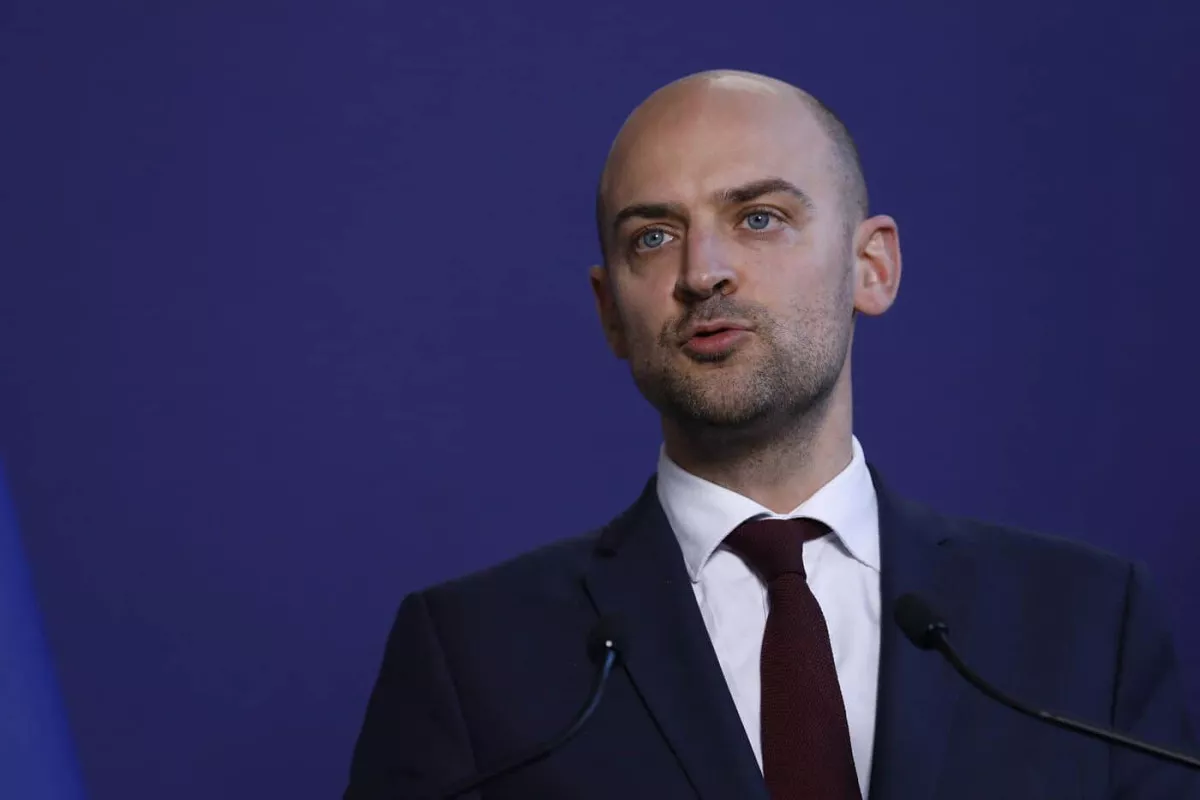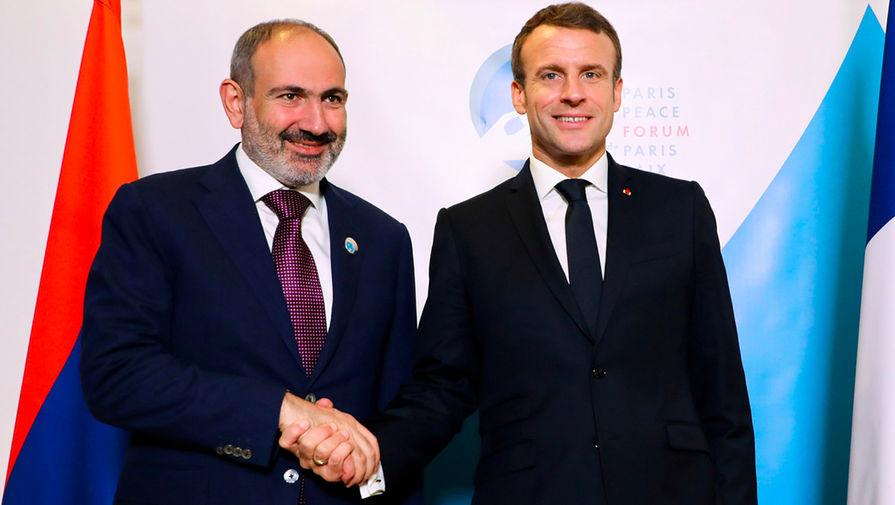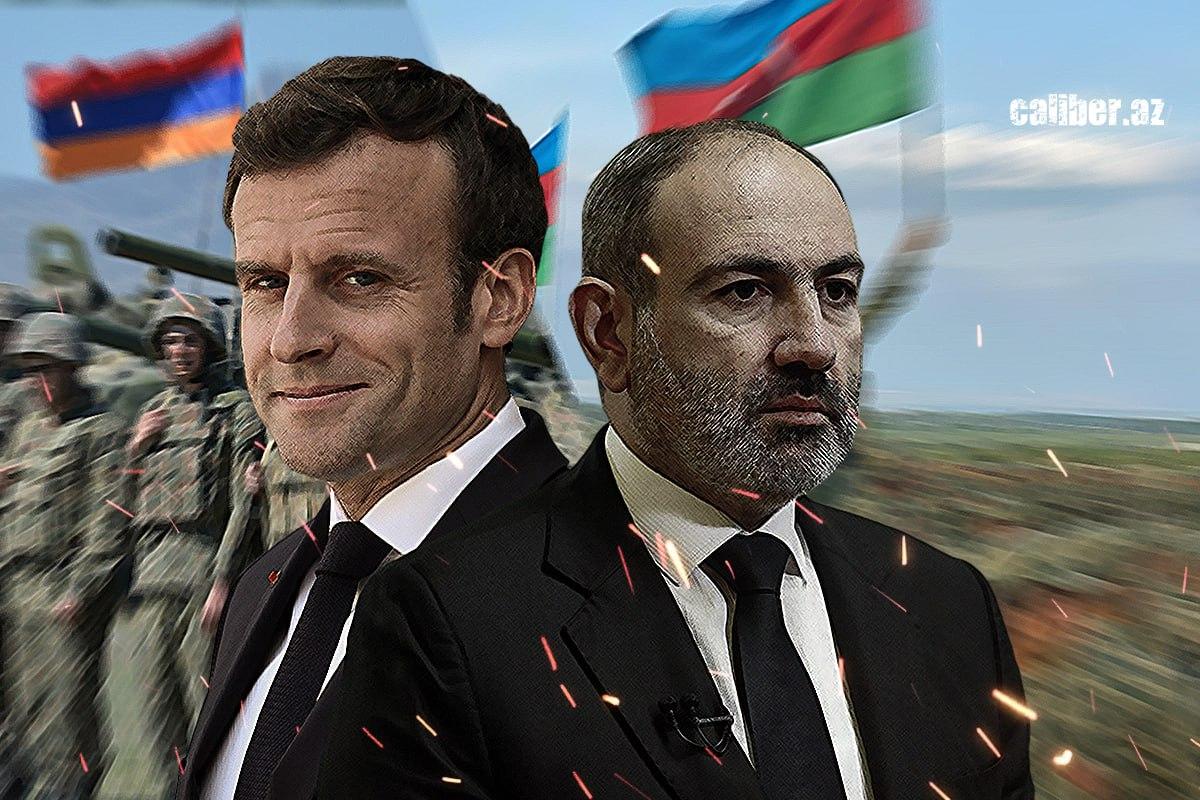Armenia’s “marriage contract” with France What will Yerevan pay with?
French Foreign Minister Jean-Noël Barrot, at a press conference with his Armenian counterpart Ararat Mirzoyan during the international conference “Yerevan Dialogue-2025” held in the Armenian capital, announced that Armenia and France plan to formally document their already existing strategic ties. Armenian media enthusiastically picked up and widely spread this news.
“The relations between our countries and peoples are already largely strategic, considering all the areas of cooperation mentioned earlier. This concerns cooperation in infrastructure and technological projects, as well as a number of programs being implemented by French regions,” said the French minister, adding that the strategic partnership project will cover new programs for several decades, including in the defence sector.
He further stated, “It is important to note the cooperation between our two countries in the defence sphere, whether it is training personnel or supplying weapons. The goal of all this is to enable Armenia to ensure its defence and sovereignty.”

For reference: According to reports from Armenian media, during the official visit of the French Foreign Minister to Yerevan, Ararat Mirzoyan and Jean-Noël Barrot signed a package of three agreements on May 26, aimed at taking bilateral cooperation to a qualitatively new level. The central document was the “Declaration of Intent,” which provides for annual political consultations between the foreign ministries of the two countries. The second agreement was a protocol amending the existing agreement between the governments of Armenia and France concerning the activities of the French Development Agency and the economic cooperation company Proparco. The third agreement is a memorandum of understanding between the Armenian investment support fund Enterprise Armenia and the French company Business France.
Particular attention is drawn to the fact that, in addition to signing the memorandum on strategic partnership with Yerevan, the French side plans to open a consulate in Goris. This was also announced by the French foreign minister, without going into details. However, the newspaper Hraparak, expanding on the topic, reported that an Armenian-French conference will be held in Goris on June 2, and on the same day, the opening ceremony of the French consulate in Syunik province (Zangezur – editor’s note) will take place.
“While Russia has been trying since 2023 to open a consulate in Syunik, and the Armenian authorities have been torpedoing these attempts under various pretexts, the wishes of France, expressed several months ago, will be realised in the coming days,” writes the publication.
So, let us try to analyse the significance of the strategic partnership through the prism of Franco-Armenian interests, as well as the appearance of the French consulate in Zangezur.
To begin with, it should be noted that Yerevan has already gained new patrons in the form of the EU and France several years ago. Therefore, the formal documentation of strategic relations between Armenia and France is purely a formality.
Regarding Azerbaijan, official Paris, following Armenia’s defeat in the Second Karabakh War, has effectively taken a confrontational stance towards the country, openly demonstrating a hostile attitude. It is enough to recall that after the signing of the trilateral statement by the leaders of Azerbaijan, Russia, and Armenia, President Emmanuel Macron demanded the immediate start of work on a long-term political settlement of the conflict, “taking into account the interests of Armenia.” It was also telling that in a special statement on November 10, 2020, the French president emphasised that, in this difficult moment, his country stands with Armenia.

The Elysee Palace openly demonstrated a pro-Armenian stance even after Azerbaijan fully restored its territorial integrity and sovereignty as a result of counter-terrorism operations conducted in Karabakh in September 2023. Thus, in January 2024, the French Senate “called on the government and international bodies to impose sanctions on Azerbaijan for its actions in Karabakh,” adopting a corresponding anti-Azerbaijan resolution.
Overall, throughout the post-conflict period, France, actively supplying Armenia with weapons, has de facto been conducting a proxy war against Azerbaijan. It should be recalled that Yerevan began receiving military aid from Paris in 2023, and in February of last year, Armenian Defence Minister Suren Papikyan and his French counterpart Sébastien Lecornu outlined new directions for defence cooperation during a meeting in Yerevan.
In June last year, Lecornu announced that Armenia had signed a contract with France to purchase French CAESAR self-propelled artillery systems. Meanwhile, the Armenian Ministry of Defence reported signing a cooperation agreement with the Franco-German defence consortium KNDS. Details of the contract were not disclosed. However, later in December 2024, the defence ministries of the two countries signed the Armenian-French defence cooperation programme for 2025.
And all these efforts by Paris pursue an obvious goal — to gain a foothold in the South Caucasus through Armenia. This has become especially relevant for Macron’s France due to its failed policies on the African continent: after withdrawing French troops from Mali, Niger, and Burkina Faso, Paris has begun reducing its military presence in Senegal and Chad as well, leaving forces only in Djibouti and Gabon.
It is worth recalling that in December 2023, an article published on the EU Reporter website stated that by supplying weapons to the Middle East, the South Caucasus, and Central Asia, France contributes to the destabilisation of these regions.
Moreover, under the cover of its status as co-chair of the now-defunct OSCE Minsk Group, the French state has throughout the entire period of the Armenia-Azerbaijan conflict acted solely in its own interest, calculating that maintaining a hotspot of tension in the region would eventually allow Paris to secure a broad presence in the Caucasus. During the Armenian occupation of Azerbaijani territories, the Fifth Republic made considerable efforts to prevent the UN Security Council resolutions from being implemented by Armenia. In addition, French politicians actively encouraged separatist elements within Azerbaijan.
All of this only confirms the following: by developing military cooperation with Yerevan, Paris is trying to create a threat factor to the security of the entire region and thereby hinder Baku’s peace initiatives. The signing of the strategic agreement with Armenia significantly facilitates the implementation of this Macron plan. Notably, in February of this year, French Ambassador Olivier Decottignies openly called on other countries to militarise Armenia in an interview with Armenian Public Radio.
“France is the only Western country supplying defence equipment to Armenia, but we hope others will follow our example,” he said, effectively not hiding France’s imperial ambitions to turn the South Caucasus into an arena of geopolitical confrontation. This is the first point.

Secondly, the French state is trying to position itself as the guarantor of Armenia’s security, to, as they say, “rub Russia’s nose,” which, in principle, also corresponds to Yerevan’s own aspirations. For this reason, France provides various support to Armenia, including military and financial aid.
Thus, in December 2023, Macron’s France announced additional aid amounting to 15 million euros, allegedly "to assist in addressing the urgent problems of refugees," although the amount previously allocated for these purposes had already exceeded 27.5 million euros. Later, in September 2024, then French Foreign Minister Stéphane Séjourné publicly stated at a joint press conference with Ararat Mirzoyan in the Armenian capital that Paris would provide 29 million euros in support of "refugees from Artsakh," and in February Armenia indeed received this money as part of so-called "humanitarian aid."
This "gesture of goodwill" from Paris was, in fact, another political move aimed at attracting the international community's attention to the factor of the so-called "Armenian refugees" from Karabakh. Thus, despite numerous video materials and reports from foreign media confirming that Armenians voluntarily left the Karabakh region, France continues to impose a different narrative on the world.
Thirdly, regarding the opening of the French consulate in Goris. Considering Paris’s subversive policies, it is safe to say that the consulate will be engaged in intelligence activities. Most likely, it will cooperate directly with the so-called EU mission, which is notorious for its openly espionage-like actions along the de facto border with Azerbaijan.
Thus, Armenia in this murky game of Paris is merely a bargaining chip. However, it seems this unenviable fate suits the current Armenian authorities quite well. But the euphoria over the strategic partnership will sooner or later vanish like smoke on the breeze — Paris will inevitably present the bill for everything. The only question is: what will Armenia have to pay with?








